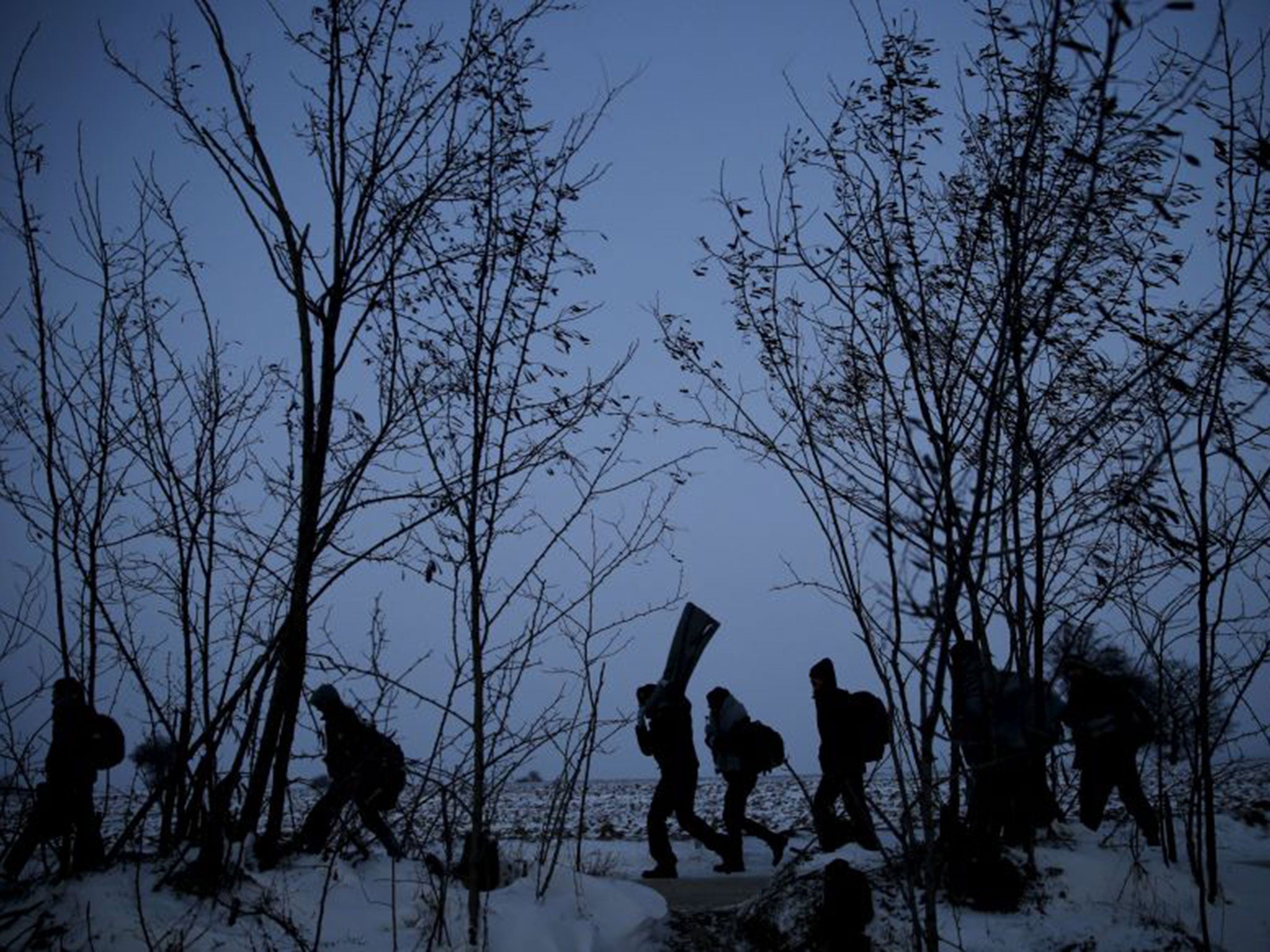Lock EU leaders in a room until the refugee crisis is sorted
Europe is running out of time. Petty nationalism must take a back seat, starting with the UK’s Brexit talks


Your support helps us to tell the story
From reproductive rights to climate change to Big Tech, The Independent is on the ground when the story is developing. Whether it's investigating the financials of Elon Musk's pro-Trump PAC or producing our latest documentary, 'The A Word', which shines a light on the American women fighting for reproductive rights, we know how important it is to parse out the facts from the messaging.
At such a critical moment in US history, we need reporters on the ground. Your donation allows us to keep sending journalists to speak to both sides of the story.
The Independent is trusted by Americans across the entire political spectrum. And unlike many other quality news outlets, we choose not to lock Americans out of our reporting and analysis with paywalls. We believe quality journalism should be available to everyone, paid for by those who can afford it.
Your support makes all the difference.The picture of Aylan Kurdi’s lifeless body being removed from a beach in Turkey last September shocked the world. But in the months that followed this tragedy, one might have be forgiven for thinking that the refugee crisis had abated. Unfortunately, nothing could be further from the truth.
On Friday, at least 43 people, including 17 children, died when their boats got into trouble trying to reach Greece. The UN Refugee Agency reported last week that the number of arrivals on the Greek islands so far this year is 30,000, up from 1,700 in the same period last year.
An already desperate humanitarian situation is worsening and the number of people risking their lives to make the journey to safety in Europe is increasing dramatically as the spiral of violence in Syria deepens. Ultimately, only a political settlement to end the Syrian conflict, involving all regional actors and Russia, will end this crisis. While some progress towards a political settlement has been made, it’s clear there will be no quick fix. Europe is running out of time.
Controversially, the EU last year pledged at least €3bn (£2.27bn) for Turkey, in return for assurances that they will help to “stem the flow” of refugees. Angela Merkel continues to pressure the Turkish government to do more, but there is no indication this agreement has yet had any effect.
One credible option open to the international community, advocated by Sir Michael Graydon in The Independent on Sunday in November and which in my view should now be considered, would be to establish and enforce humanitarian corridors or safe havens in Syria, to provide areas of sanctuary for Syrians fleeing conflict, so they wouldn’t have to make the journey to neighbouring countries or Europe in the first place. But again, this calls for a drawn-out political process.
The sad reality is that after months of crisis summits, a solution to the refugee crisis is further away than ever – and we are approaching a crunch point. While the EU has laid out a road map for measures that need to be taken collectively at the European level, the political will is lacking.
As David Cameron is discovering, delivering change in Europe is hard work. It requires the agreement of 28 prime ministers, each one beholden to national coalitions and/or parties that too often prioritise opinion polls ratings over the collective interest.
Last September, EU leaders reluctantly agreed to a relocation scheme, to ensure all countries take their fair share of refugees. The UK opted out entirely. By any standard, this has been a pronounced failure, with only about 331 out of 160,000 refugees successfully relocated.
Depressingly, EU leaders appear to be competing to make more and more outrageous and discriminatory statements, in what can only be interpreted as an attempt to deter refugees, waved on by Greece, from applying for asylum in their countries. The horrific assaults carried out by criminals in Cologne at New Year have provided fuel for nationalists like Ukip and galvanised their far-right bedfellows across Europe. So long as EU leaders continue to pander to these nationalist parties, instead of confronting them and doing what is right, the hopes of a united European solution become even more remote.
Even Angela Merkel, whose open-door policy on refugees won her global acclaim, is now coming under enormous pressure from within her party to change course. The latest polls show support for Merkel’s party could be collapsing, while there’s internal disarray in her party. The Eurosceptic and right-wing AfD party, emboldened by the financial support and political platform provided by membership of Mr Cameron’s Eurosceptic pan-EU political group, is on the rise. With three significant state elections due in March, including two where her party had hopes of victory, the pressure on Ms Merkel to impose quotas or even close borders to refugees completely, will grow. But the consequences of her doing so are profound.
The German Chancellor therefore faces a ghastly dilemma. If she gives in to pressure to close the German border, those current, creaking European systems that we do have (like the Schengen agreement) are likely to fall apart. If she holds her nerve and keeps the German borders open to refugees, she is likely to be destroyed politically. Those EU leaders who have not only refused to accept their fair share of the refugees but have gone out of their way to inflame tensions should hang their heads in shame.
If 2015 was an “annus horribilis” for the continent of Europe, 2016 will be even tougher. The risk of Brexit, Grexit, an expansionist Russia, the threat of further terrorist atrocities, combined with an uncertain economic outlook and an unresolved debt crisis, mean 2016 is a make or break year.
There is widely held view that the EU makes progress only at times of crisis. We now face a number of crises that no one EU country can tackle on its own. Yet Europe remains firmly in reverse gear. European leaders can blame no one but themselves for the chaos that will ensue if Germany closes its borders. Genuine asylum seekers, fleeing war and persecution, are the last people who should suffer because of our self-imposed chaos.
The Dutch Prime Minister, Mark Rutte, said last week that the EU has six to eight weeks before national borders go up again across Europe. Mr Cameron reportedly wants an early referendum on Britain’s EU membership in order to prevent images of drowning migrants this summer affecting the outcome of the vote. But isn’t that putting the cart before the horse?
Time-consuming negotiations with the UK should be postponed and EU leaders should instead be locked in a room until they agree on a comprehensive and collective strategy to tackle this growing refugee crisis before it’s too late. This is about more than politics. It’s about humanity.
Guy Verhofstadt (@GuyVerhofstadt) is leader of the Liberal and Democrats group in the European Parliament and former Prime Minister of Belgium
Join our commenting forum
Join thought-provoking conversations, follow other Independent readers and see their replies
Comments